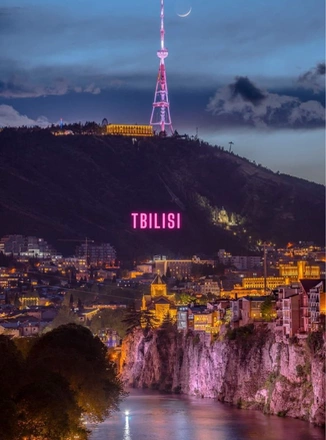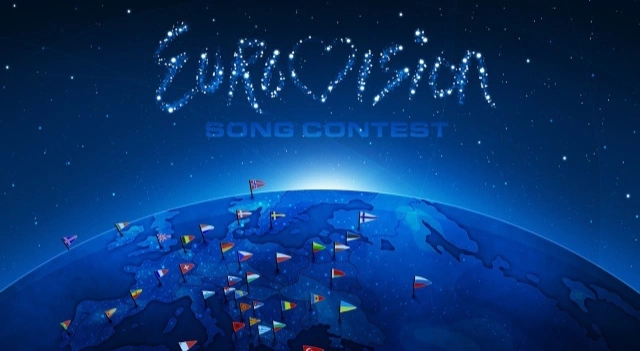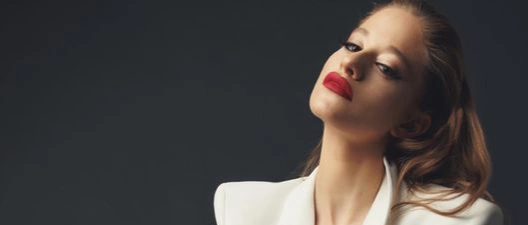Country Posts on Crowch
Georgia once again takes the stage of Junior Eurovision — this time not only as a participant, but also as the proud host. After its latest victory, the country secured the right to welcome the contest, further cementing its status as the most successful nation in JESC history.
🏅 Georgia’s Record of Success
- Georgia debuted at Junior Eurovision in 2007 and has participated every year since.
- Victories: 2008 (Bzikebi — "Bzz.."), 2011 (Candy — "Candy Music"), 2016 (Mariam Mamadashvili — "Mzeo"), and 2024 (Andria Putkaradze — "To My Mom"). That makes a total of 4 wins, the highest in the contest’s history.
- The 2024 triumph by Andria Putkaradze established Georgia as the undisputed leader of Junior Eurovision.
🎶 Junior Eurovision 2025 in Tbilisi
- The contest will take place on 13 December 2025 in Tbilisi, marking the second time Georgia hosts the event (the first was in 2017).
- Venue: the Small Hall of the Olympic Palace (New Sports Palace), already confirmed by the organizers.
- Up to 20 countries are expected to participate, with delegations arriving about 10 days before the show to rehearse and take part in cultural events.
- The Georgian government has allocated more than €2.5 million (around ₾8 million) for hosting the contest.

🌍 Why This Matters for Georgia
- Hosting the contest strengthens Georgia’s role as a cultural and creative hub capable of staging major international events.
- Junior Eurovision is not only a competition, but also a platform to showcase national talent, expand international ties, and present Georgia as both hospitable and innovative.
- After Andria Putkaradze’s moving 2024 victory with “To My Mom”, Georgia once again proved its ability to nurture outstanding young performers and support them on a global stage.
🔮 What’s Next

- In the coming months, more details will be revealed: the official slogan, stage design, hosts, ticket information, and promotional campaigns.
- GPB (Georgian Public Broadcaster) has promised an even more ambitious and emotionally charged show than in 2017.
- Follow the hashtag #JESC2025 for teasers, announcements, and behind-the-scenes updates.
🏆 Conclusion
By hosting Junior Eurovision 2025 after its record-breaking fourth win, Georgia reaffirms its cultural ambition and pride. The December contest in Tbilisi is set to become one of the brightest chapters in the history of Junior Eurovision — a celebration of young talent, creativity, and the spirit of a nation that lives through music.
For Georgia, Eurovision has long become something more than just an international contest. It is a unique stage where music turns into the language of diplomacy, and every performance becomes an opportunity to declare national culture. Over the years, the country has gone from a bright debut to leadership in Junior Eurovision, and this journey reflects not only the success of individual artists but also the development of Georgia’s entire music industry.
Debut and Rapid Start
In 2007, Georgia appeared at Eurovision for the first time. Young singer Sopho Khalvashi performed Visionary Dream, where Western sound blended with national motifs. For the international audience, this was a revelation: the country introduced itself as modern while carefully preserving its traditions.
Shaping a National Image
Each Georgian performance at Eurovision is an attempt to balance European pop culture with Georgian uniqueness. For example, Sofia Nizharadze (Shine, 2010) and the band Eldrine (One More Day, 2011) not only achieved high results but also demonstrated that Georgian performers have their own style — powerful energy, emotional depth, and original stage presence.

Challenges and Trials
Not every year was successful. Georgia sometimes failed to reach the final, faced criticism, and struggled to find new styles. Yet even these difficulties became valuable lessons. Each artist on stage contributed to the growth of Georgian pop music and opened new opportunities for younger musicians.
Politics and Culture
The country’s Eurovision story is also linked to political events. The withdrawal in 2009 due to disagreements with contest rules became a symbol that Eurovision is not only about music but also a platform where global views collide. However, despite such episodes, Georgia has always returned to the stage, proving that the main goal is to share its culture with Europe.
Junior Eurovision — A Special Pride
While victory in the adult contest has not yet been achieved, in Junior Eurovision Georgia became a true leader. Four victories made the country a record holder. This is not only a reason for national pride but also proof that a whole generation of talented young performers is growing up, ready to represent Georgia on the “adult” stage in the future.

Why It Matters for the Country
Eurovision helps shape Georgia’s cultural image abroad. Each performance becomes a calling card that tells millions of viewers about the country’s language, music, and heritage. For the younger generation, participation in the contest serves as an example that Georgian culture can be both modern and in demand worldwide.
Conclusion
Today, Eurovision for Georgia is a stage for dialogue, inspiration, and ambition. Even without a victory in the adult contest yet, the country’s many vibrant performances, along with leadership in Junior Eurovision, prove that Georgia has its own voice — and it will certainly be heard.